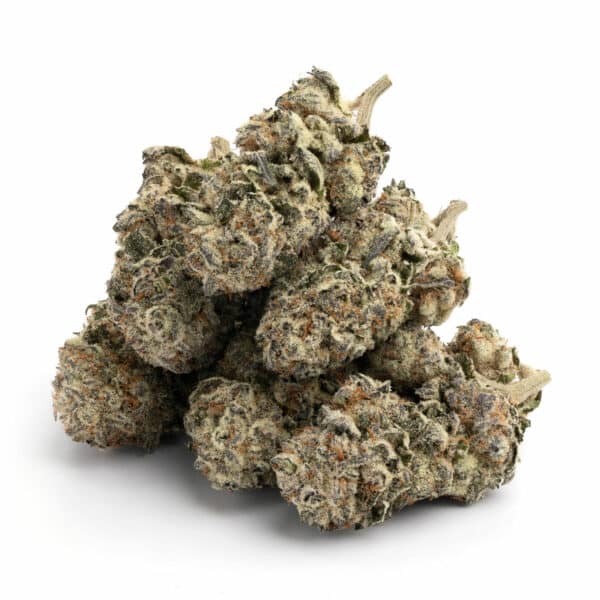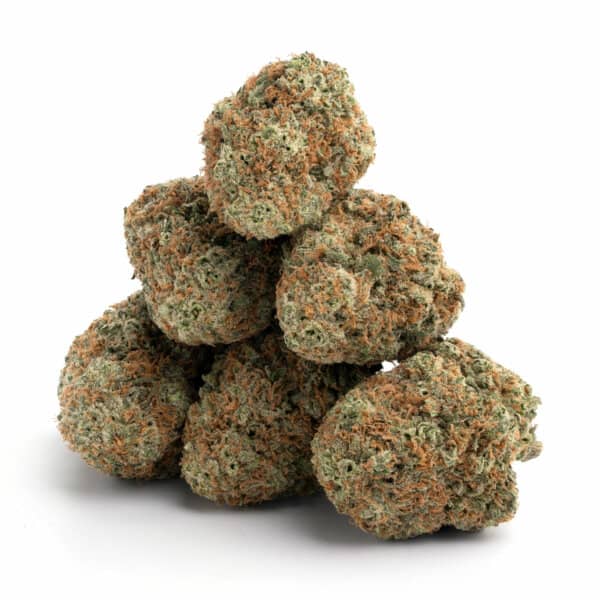The use of cannabis for sleep & pain continues to be one of the fastest-growing areas of research and consumer interest in 2025. With millions of patients seeking alternatives to pharmaceuticals, cannabinoids such as THC, CBD, and CBN are being studied for their potential to improve sleep quality and provide pain relief.
While anecdotal evidence has long supported cannabis as a natural aid, recent studies are offering scientific insights into dosing, cannabinoid ratios, and product formats. This article explores the latest findings on cannabis for sleep & pain, offering a practical guide for consumers, healthcare professionals, and businesses in the cannabis industry.
Cannabis for Sleep: What the Studies Show
Cannabis influences sleep by interacting with the endocannabinoid system (ECS), which regulates circadian rhythms, mood, and stress responses.
Key Research Highlights (2023–2025)
- THC: Low to moderate doses may reduce the time it takes to fall asleep, though higher doses can interfere with REM sleep.
- CBD: Found to reduce anxiety-related insomnia and improve sleep quality in patients with REM sleep behavior disorder.
- CBN (Cannabinol): Early studies suggest sedative properties, but clinical trials remain limited.
- Terpenes: Compounds like myrcene and linalool may provide calming, sleep-inducing effects.
👉 Takeaway: Sleep benefits depend heavily on dosage, cannabinoid ratios, and individual response.
Cannabis for Pain Relief: Current Evidence
Cannabis interacts with CB1 receptors in the brain and CB2 receptors in the immune system, helping to regulate pain perception and inflammation.
Recent Findings
- Neuropathic Pain: Cannabis has been shown to reduce chronic neuropathic pain, particularly when conventional treatments fail.
- Opioid Substitution: Patients using cannabis reported reducing or discontinuing opioid medications.
- THC & CBD Ratios: Balanced formulations (e.g., 1:1) provide effective pain relief with fewer psychoactive effects.
- Topicals & Transdermals: Increasingly popular for localized relief without systemic effects.
👉 Takeaway: Cannabis may not eliminate pain, but can significantly reduce severity and reliance on pharmaceuticals.
Popular Products for Sleep & Pain Relief
For Sleep
- CBN-infused gummies or tinctures
- Indica-dominant flower or vapes with relaxing terpene profiles
- Full-spectrum CBD oils with small amounts of THC
For Pain
- THC/CBD tinctures in balanced ratios
- Topical balms, creams, and patches for targeted relief
- Edibles for long-lasting effects (6–8 hours)
Potential Risks and Considerations
- Tolerance Build-Up: Prolonged THC use may reduce effectiveness.
- Daytime Drowsiness: Improper dosing can affect alertness.
- Drug Interactions: Cannabis may interact with sedatives, antidepressants, or blood thinners.
- Individual Variability: Genetics, body weight, and metabolism affect results.
Best Practices for Consumers
- ✅ Start low and increase gradually to find the minimum effective dose.
- ✅ Track effects in a sleep or pain journal to identify patterns.
- ✅ Consult a healthcare provider before combining cannabis with prescription medications.
- ✅ Look for third-party lab-tested products to ensure safety and consistency.
FAQs About Cannabis for Sleep & Pain
Does cannabis work better for sleep or pain?
It depends on the individual. THC-heavy products often help with sleep, while CBD and THC blends may work better for pain.
Is CBN really effective as a sleep aid?
Preliminary evidence is promising, but more clinical research is needed to confirm its sedative properties.
Can cannabis replace prescription painkillers?
Some patients report significant reductions in opioid use, but cannabis should be used under medical supervision.
Are edibles or tinctures better for sleep?
Edibles last longer, making them effective for overnight use, while tinctures allow faster onset and dose control.
Is cannabis safe for long-term use?
For most adults, it can be safe when used responsibly, but tolerance and dependence are possible.
What the Latest Research Means for Consumers
The evidence on cannabis for sleep & pain is stronger than ever, though more research is still needed. Early findings suggest that cannabis can improve sleep quality, reduce chronic pain, and even reduce reliance on prescription medications when used responsibly.
For consumers, the key lies in finding the right product, dose, and cannabinoid balance. For businesses and healthcare providers, the opportunity is in educating customers transparently while offering safe, evidence-based guidance.
👉 Looking to position your cannabis business as a trusted source for wellness education? Let’s build a strategy that connects research with consumer needs.



